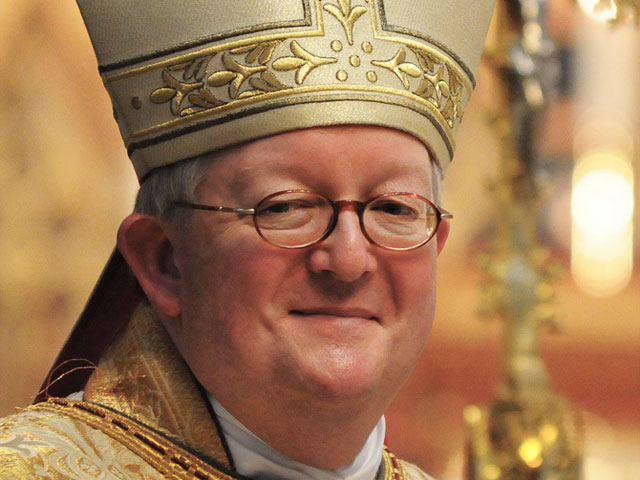Wire service reporting takes a special skill that not all writers posses. In less than 300 words, for most stories, a reporter must present the relevant facts and sufficient context to allow a reader to understand the story, while also be entertaining and interesting.
A problem arises when a wire service story substitutes analysis or opinion for news. While some stories are labeled news analysis or opinion — and as such it is proper to load a story with the author’s views of what should be rather than what is — when a news story substitutes opinion for journalism we have a problem.
An item from the Religion News Service that came across my desk yesterday illustrates this peril. In a story entitled “Church of England’s bishops defer gay marriage decision” that came in at a little under 300 words, RNS devotes only half of the story to reporting on what happened at the meeting of the Church of England’s House of Bishops and what they said and the balance to what RNS thinks we should think about the story.
And RNS neglects to mention the most news worthy portions of the report — that the bishops are hopelessly divided over the issue of homosexuality.
The lede is rather anodyne, but does mention one fact from the report:
CANTERBURY, England (RNS) With little more than two months to go before Britain’s first same-sex marriage, the College of Bishops issued a statement saying that “no change” to the Church of England’s teaching on marriage is proposed or envisioned.
Next comes a sentence providing the setting:
The statement came after an all-day meeting at Church House in central London Monday (Jan. 27) attended by 90 bishops and eight women participant observers.
And then a paragraph on the purpose:
The aim of the meeting was to discuss the recommendationsof the Pilling Report on human sexuality that was published in 2013. That report was the result of a recommendation made by church leaders at the end of the Lambeth Conference in 2008 that Anglicans should embark on a discussion process to help heal the rift on the subject of full rights for Christian homosexuals.
Followed by a quote from the report on what happens next:
“The House of Bishops will be meeting again next month to consider its approach when same sex marriage becomes lawful in England and Wales,” the statement reads.
The story breaks down as news at this point as it turns to argument and opinion with selected polling data, extraneous information about what is happening in Africa and Scotland (items that might be independent stories but no tie is provided to the bishops’ meeting or evidence that it had any relevance to their debate), and closes with an opinion from a Guardian columnist notoriously hostile to the Church of England’s current position.
That is it. Compare this story to the piece that appeared in the Telegraph. Admittedly twice as long as the RNS piece, the Telegraph piece conveyed vastly more information and hardly any commentary.
The key facts of the report, the items with which the Telegraph led its story, were never mentioned by RNS.
The Church of England’s bishops have finally reached agreement on homosexuality – by saying that they might never be able to agree.
They emerged from a frank, day-long meeting behind closed doors, discussing their response to radical proposals to offer wedding-style blessing services for gay couples, and admitted they are deeply divided over the issues and are likely to remain so for years to come.
In a joint statement on behalf of the 90 bishops who attended, they said that “the best they could hope for was “good disagreement”.
The announcement effectively kicks proposals trumpeted before Christmas as a solution to the Church’s wrangles over homosexuality into the long grass.
Even if RNS wanted to keep the story focused on the “no change” angle, they neglected to provide the context that would have explained the importance of this angle. While the bishops do not expect a change to the marriage liturgy — which has not been under consideration — the Pilling Report (the document the bishops discussed) has proposed allowing clergy to perform blessings of same-sex unions.
In short, gay marriage which had been off the table remains off the table, while gay blessings remains a live issue — over which the bishops are hopelessly divided.
Rather than push its own views on the inherent goodness and inevitability of gay marriage in the second half of the story, it may have been better to have offered analysis on the meaning of the fact reported in the opening sentence. Or, they could have stuck to the facts like the Telegraph. Better yet, they could have simply reprinted the bishop’s statement and then supplied a commentary piece labeled as a commentary piece. I’m afraid that this is not a good outing for RNS as a reader will left in the dark as to what is happening with gay marriage in the Church of England.











